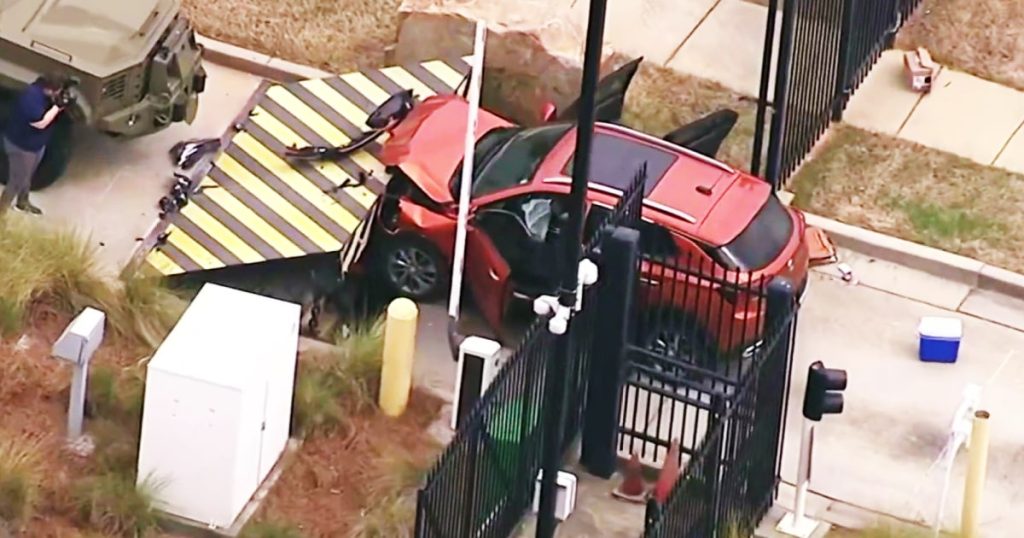Ervin Lee Bolling, a former military member, recently drove his SUV into a barricade at the FBI office in Atlanta, leading to criminal charges for destruction of government property. He has online ties to QAnon-related content and is believed to be a supporter of former President Donald Trump. According to an investigation by Advance Democracy, social media accounts linked to Bolling promoted conspiracy theories about the 2020 presidential election and expressed support for Trump. Following the incident, Bolling refused to comply with instructions from FBI agents and resisted arrest.
Advance Democracy’s report revealed that a Telegram account using Bolling’s name was a member of several QAnon-related groups. Bolling’s wife declined to comment on his beliefs, and he does not currently have legal representation. Daniel J. Jones, the president of Advance Democracy, emphasized the importance of recognizing and addressing the growing trend of violent rhetoric and actions among individuals associated with Trump and QAnon. He called on elected officials, especially Republicans, to denounce such behavior and prevent further violent actions against public officials.
Jones highlighted the uncertainty regarding Bolling’s motivations for crashing into the FBI office gate. However, he emphasized that Bolling’s suspected social media activity is part of a larger pattern involving Trump supporters who advocate anti-government views and conspiracy theories, often influenced by Trump’s statements. The incident is seen as another example of the violent actions taken by individuals aligned with Trump following the 2020 election. Over 1,265 defendants have been charged in connection with the January 6 attack on the U.S. Capitol, with Trump himself facing multiple charges related to his actions surrounding the election results.
The Department of Justice’s continued investigation into the events of January 6 reflects the ongoing legal repercussions for those involved in the attack on the Capitol. Trump’s legal troubles also persist, as he faces charges of conspiracy to defraud the United States, obstruction, and conspiracy against the right to vote. Despite pleading not guilty, Trump’s trial has been indefinitely delayed. The case against Trump underscores the broader impact of his actions on the political landscape and the consequences for individuals associated with his administration. The connection between Trump’s rhetoric, the rise of conspiracy theories, and violent actions by his supporters underscores the need for vigilance and accountability in addressing extremism in the United States.


